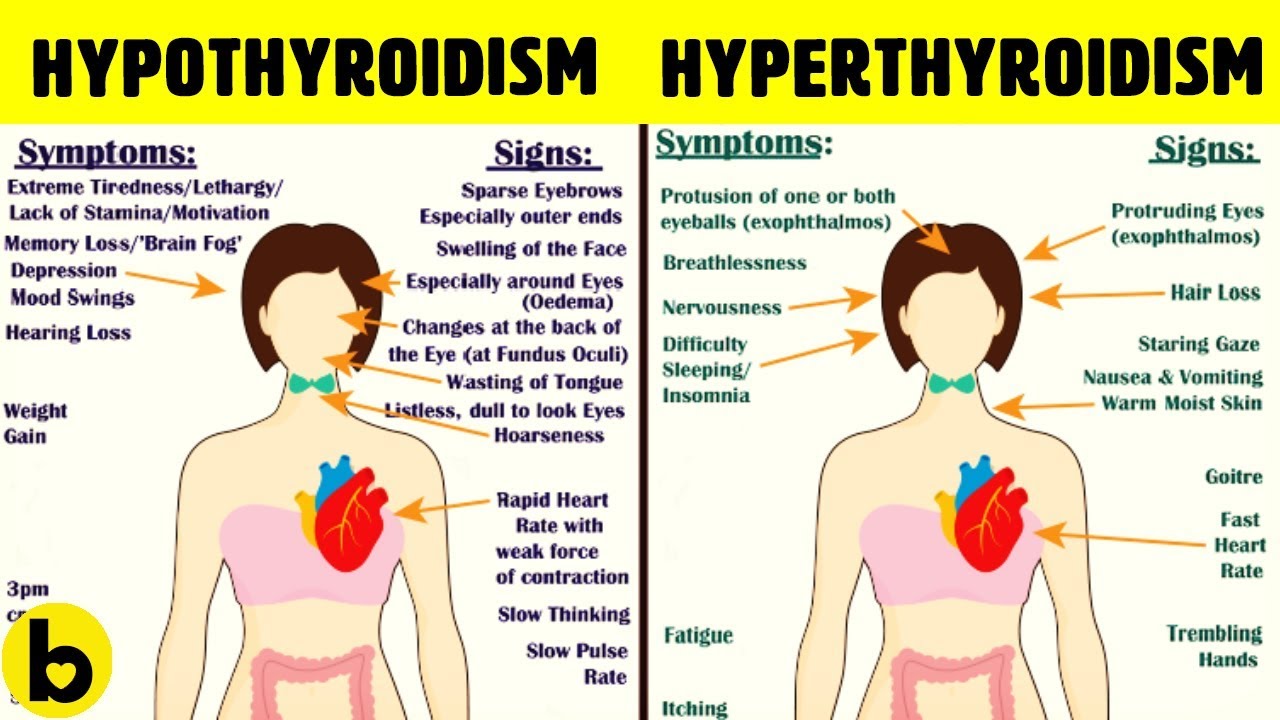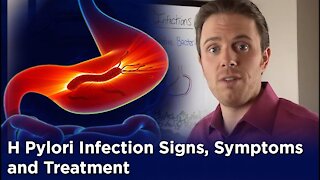Premium Only Content

Thyroid Symptoms In Women: Signs, Causes & Treatment
Everything you need to know about Thyroid disorders in women. Hypothyroidism and hyperthyroidism symptoms, causes and treatments.
#Hypothyroidism #Hyperthyroidism #ThyroidSymptomsInWomen
Music:
https://www.youtube.com/audiolibrary/music
Summary:
What Is Hypothyroidism: According to the Mayo Clinic, this disorder means that your thyroid gland is barely active and there is not enough of the thyroid hormone in the blood. Hypothyroidism is also called underactive thyroid or low thyroid, and is classified as a disorder of the endocrine system in a person's thyroid gland. It occurs when the thyroid gland does not produce enough thyroid hormone. This results in a number of different symptoms. The symptoms can vary from person to person, but one clear signal is the ability to lose weight.
Hyperthyroidism: This thyroid disorder is the total opposite of hypothyroidism. Hyperthyroidism means that there is too much thyroid hormone in the blood, says WebMD. Also different is how it affects the metabolism, unlike hypothyroidism this disorder speeds up the metabolism.
Cause of Thyroid Disorders: The most common cause of hyperthyroidism is graves' disease, which is an autoimmune disorder and the most common cause of hyperthyroidism. It causes antibodies to stimulate a person's thyroid, making it secrete excess amounts of the hormone. Graves’ disease is much more common among women than it is in men, and is usually genetic. Other causes of hyperthyroidism are tumors in the ovaries, benign tumors of the thyroid or pituitary gland, excess iodine, large amount of tetraiodothyronine which are taken through medication or supplements, and more.
How to Detect and Treat These Disorders: If you or someone you know is developing symptoms that were mentioned above, doctors will conduct blood work to confirm if the thyroid hormones are within range. The Mayo Clinic explains that the treatment for thyroid disorders normally includes the prescription of a synthetic hormone called levothyroxine. Also, anti-thyroid drugs that block production of your own thyroid hormones may also be used.
Most symptoms associated with thyroid disorders are very slow and gradual. You may not notice the symptoms at first. This is why it is important to monitor your health, and the moment you start to notice symptoms like extreme fatigue, excessive weight gain or loss, dry skin, puffy eyes, and / or a pale face, consult with your doctor to rule out any thyroid disorders. If you are diagnosed with a thyroid disorder, your doctor will put you on a course of treatment to minimize your symptoms.
-
 9:38
9:38
Bestie
2 years ago7 Red Foods You Must Eat That Can Save Your Heart Health
6881 -
 6:53
6:53
KTNV
4 years agoSymptoms Of Low Thyroid
52 -
 12:00
12:00
Just In Health
4 years agoH Pylori Infection Signs, Symptoms and Treatment
356 -
 7:03
7:03
KTNV
4 years agoSymptoms of Low Thyroid
34 -
 30:21
30:21
Friday Beers
4 hours ago $1.05 earnedOur Brutal Golf Challenge: Hot Wings Roulette
15.5K -
 2:58:40
2:58:40
Barry Cunningham
5 hours agoPRESIDENT TRUMP SPEECH AT MAKING HEALTH TECHNOLOGY GREAT AGAIN! EVENT AND MORE NEWS!
42.5K25 -
 LIVE
LIVE
ZeeroG
3 hours agoStarfield (E.P 4 ) 7/30/25
18 watching -
 1:00:08
1:00:08
The Officer Tatum
5 hours agoLIVE: Left CANCELS Their Own, All White Town, NYC Shooter Update + MORE | EP 146
21.1K26 -
 LIVE
LIVE
Julian Orbit
1 hour agoMy Friendly Neighborhood - First Look
15 watching -
 LIVE
LIVE
TYM LIVE
3 hours agoThey call Me Audio Issues
13 watching